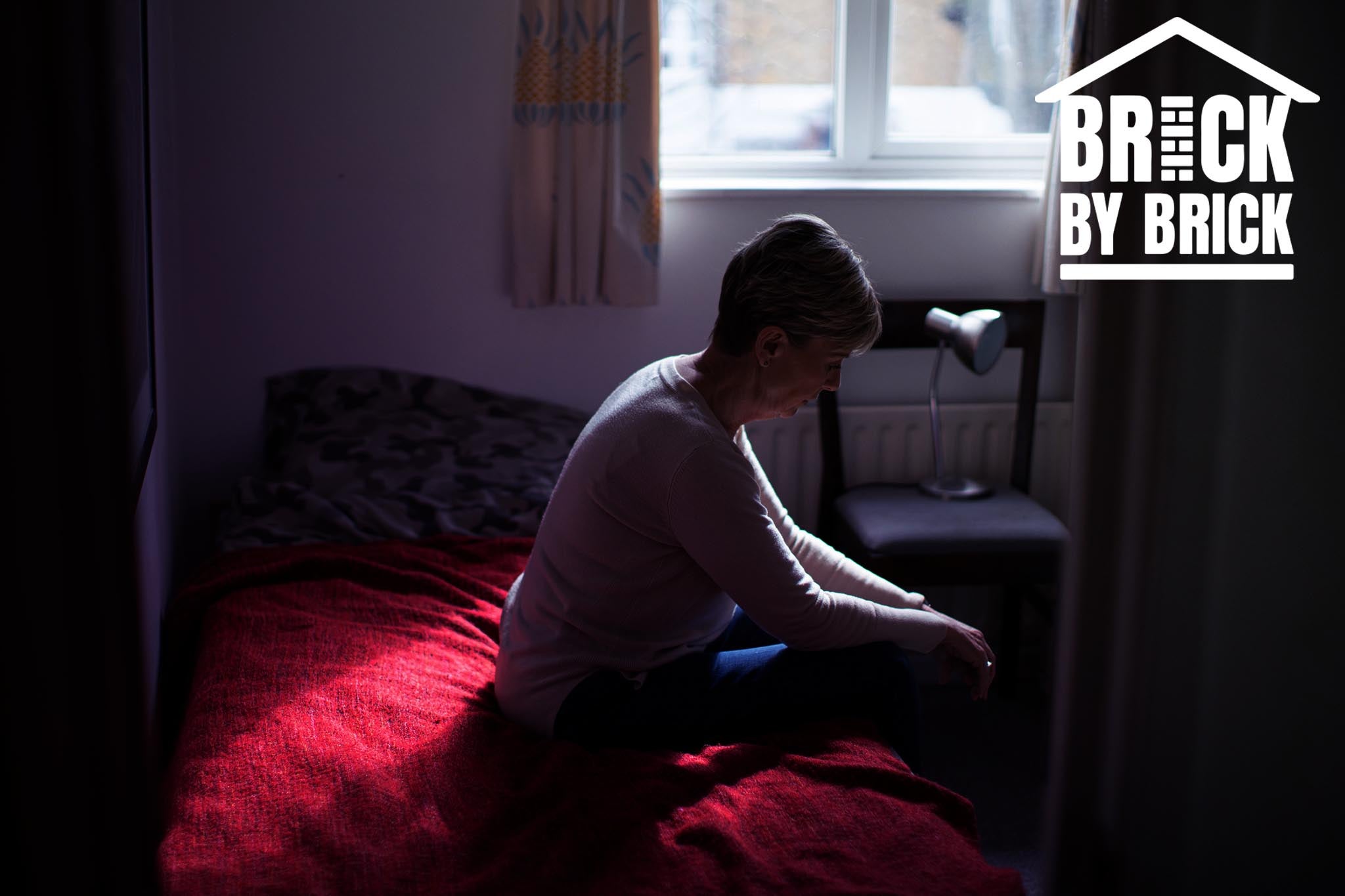How I helped my friend escape an abusive relationship
The Independent has partnered with charity Refuge to build a home for women escaping violent partners. Here, Alexis Paton describes what it’s like to be an ally to someone who needs to leave because their life depends on it


Your support helps us to tell the story
From reproductive rights to climate change to Big Tech, The Independent is on the ground when the story is developing. Whether it's investigating the financials of Elon Musk's pro-Trump PAC or producing our latest documentary, 'The A Word', which shines a light on the American women fighting for reproductive rights, we know how important it is to parse out the facts from the messaging.
At such a critical moment in US history, we need reporters on the ground. Your donation allows us to keep sending journalists to speak to both sides of the story.
The Independent is trusted by Americans across the entire political spectrum. And unlike many other quality news outlets, we choose not to lock Americans out of our reporting and analysis with paywalls. We believe quality journalism should be available to everyone, paid for by those who can afford it.
Your support makes all the difference.The phone rings and I know it is him. In the weeks since we started planning her escape, she has taught me to recognise his ringtone. The one that signals to her that he wants to know where she is, what she is doing, and who she is with. She runs upstairs with the phone in her hand, closes the door to her room.
Downstairs, her friends are chatting, her child playing. We know today is the day she gets out. Seconds later, she races down the stairs. The jubilant, almost party atmosphere that occupied the house a minute before evaporates, as she says, shaking and wide-eyed: “He knows. We have to go. He knows. We have to go NOW!”
And then she shuts down. She’s unable to harness her thoughts as her body goes into full flight mode, so we help her figure out what bags she needs and what documents to take, hiding all this from her child. We pack the car, check that the newly changed locks work and that she has a key. Upstairs, she stands fixed and terrified in the swirling eddy caused by the knowledge that her abuser knows she’s acted against him. Knows the courts have barred him from entering the house. From being anywhere near her.
She is shaking and sobbing, and as I hug her, she looks at me and says, “I’m scared. I’m scared. He is going to hurt us. I’m scared” – in a voice so full of visceral fear, for her life and that of her child, that I know without a shadow of a doubt, if he gets in the house, she is right.
But he cannot hurt her. Not now. She’s been working for weeks towards this moment – and for once, the courts are behind her. They have granted her all the protections she asked for. They agree that he is dangerous to her, that he compromises her safety. But right now, the only thing she knows is years and years of abuse. Years of doing whatever makes her safe when he is angry. It has been so long since she has felt safe to stand up for herself that doing the absolute right thing feels incredibly dangerous – deadly, even.
I hug her and I say the only thing I can think of to calm her down: “You are safe. Your child is safe. He cannot hurt you any more. We are here to protect you.” Like a mother with a child, I take her face in my hands and I look right in her eyes when I say: “His time is over. This is your time.” She calms down. She starts to breathe again. We pack her off to safety for the night. Her abuser cannot come to the house, cannot even come close enough to speak to her, but just in case, we send her off for the first night.
Nobody knows what goes on behind closed doors. Relationships and families can appear one way to the outside world, and yet work in a completely separate way inside the home. When she told me about their relationship troubles, I had already seen the anger he could display. It came on so fast it was shocking. It scared me, even though it was directed at his child, for what was really just one of the many petty squabbles children have when they play together. I already had a sense of what lay beneath what was, to me, an obviously curated exterior. A monster lay behind the charm, and he had shown himself.
In the days that followed, I asked a bit more about how things were. To this day, I am still undecided on what was more shocking: the account of emotional abuse and manipulation, of coercive control, of financial domination – or the almost blase way that she recounted it to me. Our conversation centred largely on her concerns about how she needed to be better at understanding him, to be closer to him again, to rebuild a connection she felt was lost. I thought it was shocking that she didn’t see what I saw. To her, it seemed it was all her fault.
But I was wrong.
The next day, after writing and deleting several carefully crafted texts that I was sure would end our long friendship, I sent her one saying I was concerned. That maybe I had misunderstood, but his behaviour sounded abusive to me, and that if she agreed, I would support her talking to someone. Well, she did agree. In fact, she had been speaking to someone for some time. His abuse, it turned out, was well documented in doctors’ notes, counselling sessions and police reports. She knew full well what was happening; she just didn’t know how to get out of it.
And there it is. When people say, “Why don’t you leave if you are being abused? Who lets themselves get into that situation? Just walk away,” it is never that simple. Sure, she could have walked out the door, but he had spent years trying to convince her that she was mentally ill and could not survive without him. That on her own, she was a danger to herself and their child. Her doctor’s notes proved otherwise. She was sane, competent, completely and utterly normal, and able to care for herself and her child. But there he was in her head, convincing her that she wasn’t, wouldn’t ever be, enough.
His real arsenal was a continual argument that whatever he was asking her to do, whatever he berated her for, whenever he pushed her to the ground in anger, it was all because he was trying to improve her. If she would only watch the TV shows he had sanctioned, eat the food he allowed, listen to only his music, see only the people he wanted her to see, she would become a better version of herself.
That’s all he wanted – for her to be the best version of herself. It is a deadly narrative that is impossible to fight against: how can he be abusing her if all he wants is for her to be “better”? How do you convince yourself to leave when you think you cannot survive on your own?
But today, she marshalled a strength she had been told to forget she had. She stopped believing she was less than she was. She started to see what the rest of the world saw in her, and in him. When she returns to the house that is now only hers, the sun is streaming in through the windows. Flowers sit on the kitchen counter to welcome her home. She dances to her music as joy rebounds around the walls.
His time is over. It is her time now.
Be a brick, buy a brick and donate here or text BRICK to 70560 to donate £15
Please donate now to the Brick by Brick campaign, launched by The Independent and charity Refuge, to help raise £300,000 to build a safe space for women where they can escape domestic abuse, rebuild their lives and make a new future.
If you are experiencing feelings of distress, or are struggling to cope, you can speak to the Samaritans, in confidence, on 116 123 (UK and ROI), email jo@samaritans.org, or visit the Samaritans website to find details of your nearest branch. If you are based in the USA, and you or someone you know needs mental health assistance right now, call or text 988, or visit 988lifeline.org to access online chat from the 988 Suicide and Crisis Lifeline. This is a free, confidential crisis hotline that is available to everyone 24 hours a day, seven days a week. If you are in another country, you can go to www.befrienders.org to find a helpline near you.